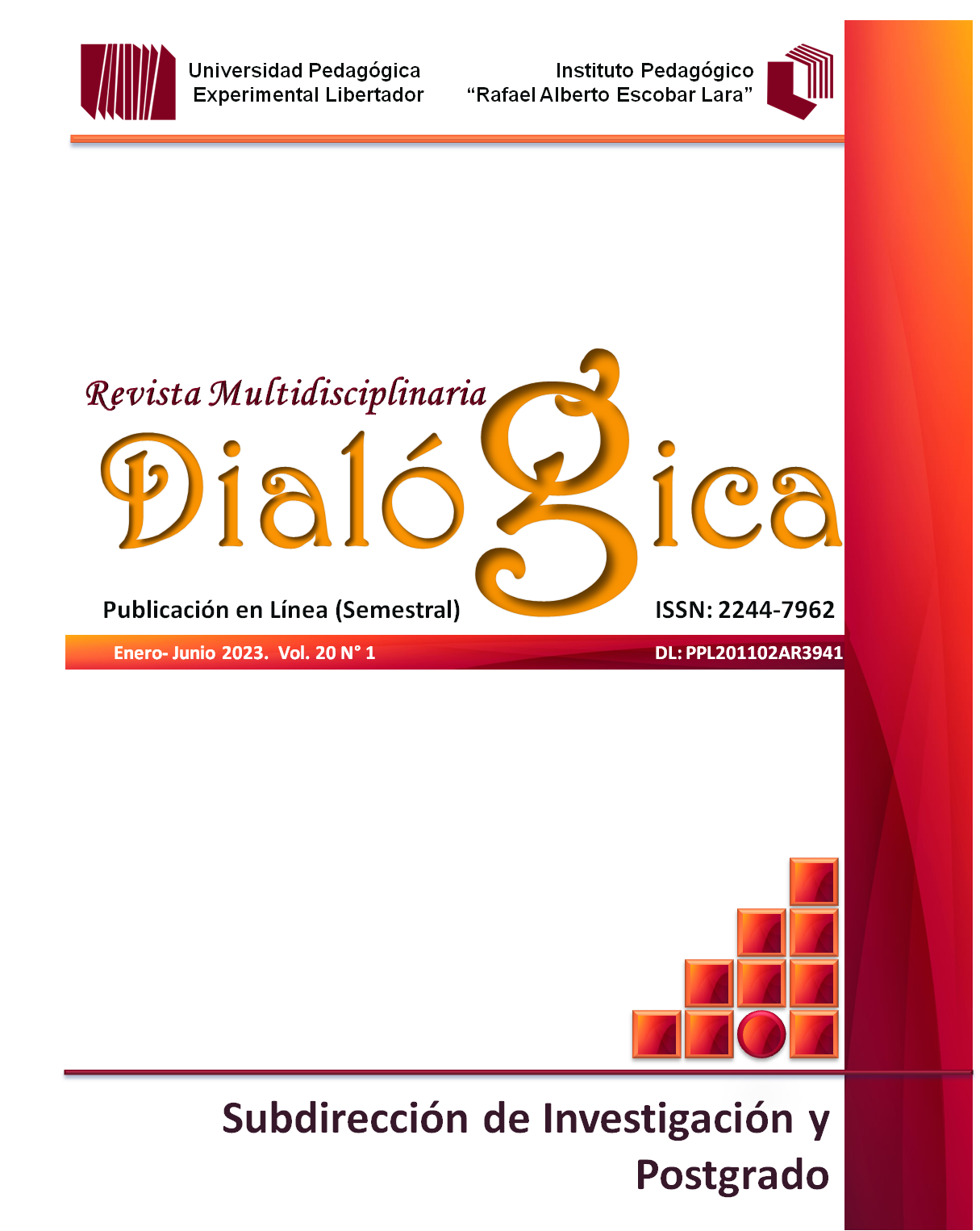SOCIO-POLITICS IN THE LEADERSHIP OF CITIZEN PARTICIPATION THROUGH THE USE OF INFORMATION AND COMMUNICATION TECHNOLOGY (ICT)
DOI:
https://doi.org/10.56219/dialgica.v20i1.2245Keywords:
Leadership, citizen participation, information and communication technologyAbstract
The general aim of this article was to analyse the leadership of citizen participation through the use of information and communication technology (ICT) from the perspective of socio-politics and the arrival of the coronavirus (COVID-19). The approach was based on a documentary review, using some visible realities in Latin America and the Caribbean as a reference, with an emphasis on citizen participation in Venezuela. The historical journey began from the social aspects of leadership in ancient civilisations to the present day, applying philosophical hermeneutics and the theory of knowledge on the subject for a better understanding and interpretation of the technological accessibility movement that had, among other things, the promotion through various digital windows to generate a new reality and transformation that would give rise to new social opportunities.
References
Arriaza, R. (2012). El desafío de la participación ciudadana en el estado democrático de derecho: avances y retos de la participación ciudadana en la gestión de políticas públicas, en espacios institucionales de los estados centroamericanos. San José, CR: Flacso. https://www.corteidh.or.cr/tablas/31001.pdf.
Bass, B. (1985). Leadership and Performance Beyond Expectations. New York: The Free Press.
Carta Iberoamericana de Participación Ciudadana en la Gestión Pública (2009): https://clad.org/wp-content/uploads/2020/07/Carta-Iberoamericana-de-Participacion-06-2009.pdf.
Dilts, R. (1998). Liderazgo creativo. Barcelona: Urano.
Durao, J. (1988). El proceso de democratización: una tentativa de interpretación a partir de una perspectiva sistémica. Revista de estudios políticos. Nueva época. Números. 60-61. Abril – Septiembre.
Estrada, S. (2007). Liderazgo a través de la historia. Revista Scientia et Technica, 34. https://www.redalyc.org/pdf/849/84934058.pdf.
Helirriegel, D y Slocum, J. (1998). Comportamiento organizacional (12a. ed.). El Solucionador. https://gc.scalahed.com/recursos/files/r161r/w24927w/CO-Hellriegel.pdf.
Organización de las Naciones Unidas para la Educación, la Ciencia y la Cultura (UNESCO, 2022). Reforzar el liderazgo de los Coordinadores Residentes. https://unsdg.un.org/es/2030-agenda/liderazgo-de-los-coordinadores-residentes.
Organización de las Naciones Unidas para la Educación, la Ciencia y la Cultura (UNESCO, 2022). Informe de Objetivos de Desarrollo Sostenible. https://unstats.un.org/sdgs/report/2022/The-Sustainable-Development-Goals-Report-2022_Spanish.pdf.
Pírela, L; Camacho, H; Sánchez, M. (2004). Enfoque epistemológico del liderazgo transformacional Omnia, 10, 2,. Universidad del Zulia. Maracaibo –Venezuela. https://www.redalyc.org/pdf/737/73710203.pdf. Consulta [2022, diciembre 10]
Sanhueza, A. (24 de agosto de 2018). Andrea Sanhueza, experta en participación ciudadana, Investigadora Alianza para el Gobierno Abierto. [Archivo de video]. https://youtu.be/c-87EggaTfA.
Seoane, J. (2007). Antropología filosófica y teoría social. Revista Episteme, 27 (2). https://ve.scielo.org/scielo.php?script=sci_arttext&pid=S0798-43242007000200008.


 @revistadialogica
@revistadialogica DialogicaUPEL
DialogicaUPEL RevistaDialogicaUPELMaracay
RevistaDialogicaUPELMaracay dialógicaupel@gmail.com
dialógicaupel@gmail.com dialogicaupel.blogspot.com
dialogicaupel.blogspot.com https://issuu.com/dialogicaupel
https://issuu.com/dialogicaupel https://revistas.upel.edu.ve/index.php/dialogica/
https://revistas.upel.edu.ve/index.php/dialogica/









